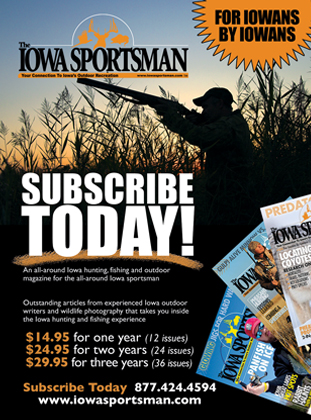Little Brown Dogs
Little Brown Dogs
By Ryan Eder
The old adage “good things come in small packages” should be the official slogan for the Boykin Spaniel breed. There are a few other breeds of smaller stature that we could argue this for as well. I have seen a rising popularity of the Boykin Spaniel in the hunting dog community, with more and more handlers and their Boykins participating in hunt test venues (both upland and retriever hunt tests). The increasing popularity does not surprise me at all; in fact I am surprised it took this long! I was fortunate enough to be introduced to the Boykin Spaniel over the past few years while training with local AKC and HRC clubs, as well as training for and judging UGA upland hunt test events and I have to admit, I am intrigued. This is one of the only breeds with their own registry (Boykin Spaniel Society or BSS). They are also the state dog of South Carolina, with “Boykin Spaniel Day” every September 1 to celebrate dove opener! This breed has a lot to offer and I found it entirely appropriate to share some information about these “little brown dogs” with our readers in case anyone is debating on adding a new dog to their home.
We all have our own goals, needs and preferences so the fact that there are several sporting dog breeds to choose from is a great thing. That is actually the reason that I enjoy hunt tests so much; watching a variety of dogs work. Knowing that we all have different ideas of what we want in a dog, I can only speak from my own experience and preferences to touch on some intriguing characteristics of the Boykin Spaniel that I feel make them a great option for anyone looking for a dog.
Versatility
I am a Midwest bird hunter. That means that I shoot ducks, geese and pheasants (I’ll admit, most of them are released birds). That being said, my personal preference is a dog that is capable of both waterfowl and upland hunting so that I can enjoy hunting with my dog as much as possible. Five years ago if you told me that spaniels can play the retriever game I would have laughed. Having watched them do it, let me be perfectly clear; if you need a dog to sit in the blind or the boat to mark falling ducks and retrieve them then these guys can oblige. In terms of upland bird hunting, we all know that when it comes to intense and deliberate quartering patterns, incredible drive and stamina for days that spaniels tend to fit the bill. The Boykin is no exception.
Bigger is NOT always better
At the end of the day, there is something to be said for a dog that can fit in your layout blind with you, or easily ride along in the boat without you even noticing they are there. Fitting in a small or medium sized crate means that regardless of what vehicle you drive it is easy to transport your dog safely. When it comes to sharing your home with a dog, a smaller dog has plenty of advantages as well. I have always had retrievers, and as much as I love them, there are times where a smaller dog would be downright convenient. Whether you are taking a canoe to remote wetlands to chase ducks, or trying to reach some of the most remote patches of cover, traveling with a smaller dog on a kayak or ATV of some kind is virtually effortless.
Key considerations to make before owning a Boykin
Yes, the Boykin is a smaller breed. Do not mistake their small size with a small requirement for daily exercise; this breed needs daily physical activity. While a morning walk may work as part of their regimen, you will want to give them at least one vigorous session per day where they can really run (a great example would be retrieving drills). I think this is true for almost all sporting breeds, but the Boykin is a breed that thrives on having a job to do. You’ll want to give them a job, or they will take it upon themselves to create one; likely their created job will not be in-line with what you want them to do!
Training a Boykin Spaniel
Overall I believe training a dog is completely dependent on the dog themselves. In other words, as trainers our success largely depends on our ability to read the dog, know how to teach, know when to add more to the lesson or apply pressure, but also know when we need to step back and ease our approach. Boykins have a very natural instinct to quarter, break cover and stay in gun range with minimal instruction (this is a general statement but well-bred Boykins should uphold this).
With field work being more of a natural occurrence in well-bred Boykins the priority would be to nurture and encourage retrieving skills. This breed trains differently than a retriever. A great analogy would be the “employer-employee” relationship. This works with my labs; they handle pressure quite well (not all labs do). While there are exceptions I’m sure, spaniels in general do not respond to this kind of training or working relationship. I hate using the word “soft”, because when you watch these dogs perform soft is the last word you would use to describe it. They just do not respond well to a trainer that is very heavy on the pressure and forceful in their ways. If you take a co-worker approach to your relationship, and teach concepts through repetition and attrition, the “team” will improve. Balance is critical; while you cannot be as hard on a Boykin it is just as important that you do not let them control you either. This breed in highly intelligent, and loves to work; if you can make training fun, and keep their attitude positive, then teaching them what you expect will not be very difficult.
Health concerns with the Boykin Spaniel
Like any breed, you will want to make sure that you only talk to breeders who follow sound health screening and conformation practices. Breed specific issues are relatively minor, with ear infections being common (large, floppy ears) as well as a need to be brushed regularly because their coat is rather inviting to any kind of burr you can imagine. In the winter, ice can build up in their paws with the longer hair so make sure to keep that hair trimmed, and regularly check their paws in the field. This is not a dog for ice cold water; in their defense they are typically less than 40 pounds in weight, so naturally they are not equipped for those conditions like a retriever with a double coat.
The Boykin Spaniel is a very enjoyable dog to be around. They make outstanding family companions, exceptional field dogs and come in a smaller package convenient for transporting and sharing a boat or blind with. If you can provide adequate exercise and are willing to commit to a consistent training program, this dog could be an ideal fit for any bird hunter. As always, a gundog can only be as good as the environment they are raised and trained in. I also caution you again to seek out responsible breeders who know the breed, have experience and prioritize health screening and clearances in their kennel. A breeder is not just a place to purchase a puppy; they are your source of information regarding care, training or general topics for the duration of your dog’s life.
For more information regarding Boykin Spaniels, or questions about any other sporting breeds please contact the Upland Gundog Association at info@uplandgundog.com

